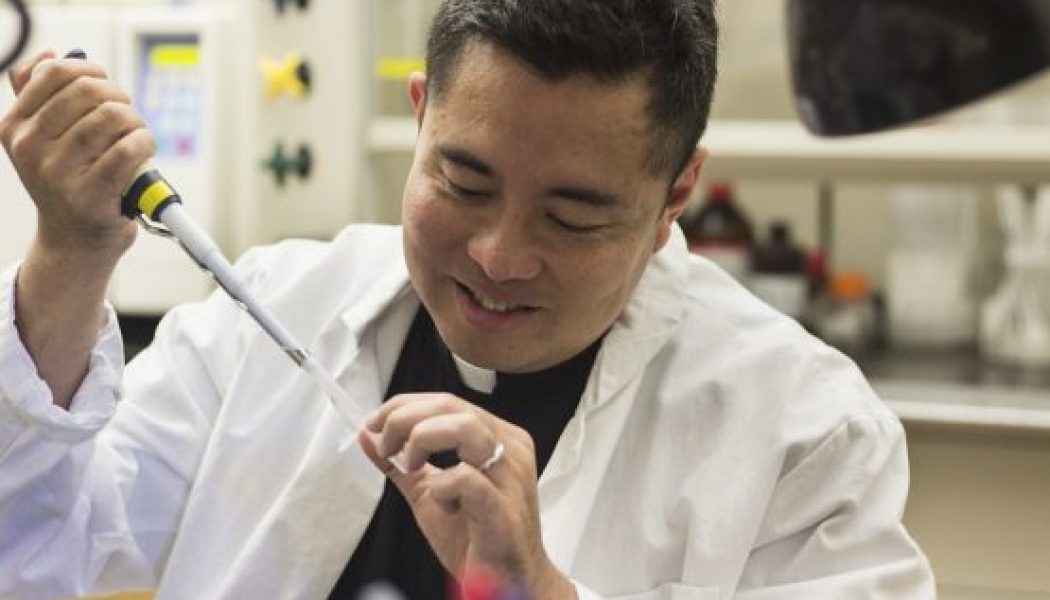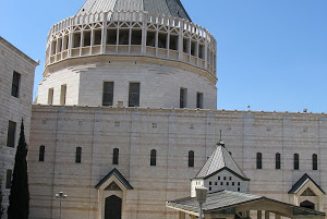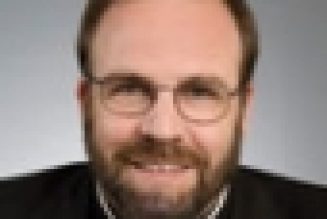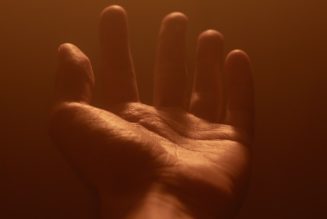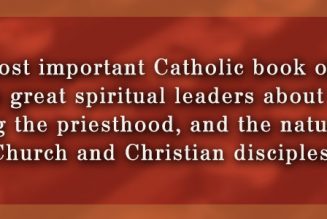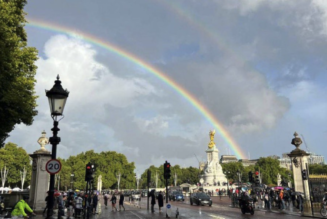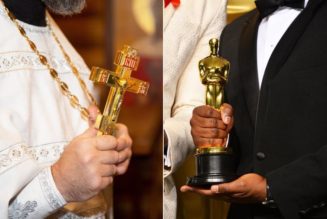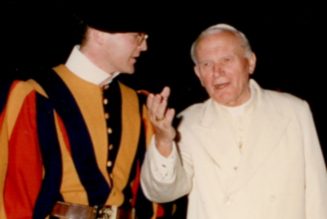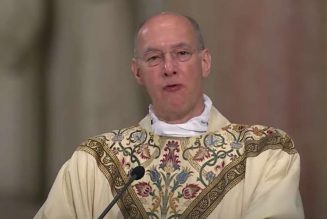ROME – As American Catholics continue to wrangle over the morality of COVID-19 vaccines using stem cell lines remotely derived from aborted fetuses, one Filipino Dominican priest, who’s both a moral theologian and an MIT-trained molecular biologist, is pleading with them to consider the potentially dangerous global consequences of their rhetoric.
“You’ve got American Catholics telling Catholics all over the world that receiving the vaccine is a ‘lesser evil,’ so you’re putting millions of my fellow Filipinos in an ethical dilemma,” said Dominican Father Nicanor Austriaco, who teaches at Providence College in Rhode Island, and who’s currently on sabbatical helping to develop a low-cost and easy-to-use vaccine for his native country.

Father Nicanor Austriaco. (Credit: Photo courtesy of Dominican Friars Foundation.)
“The Philippines is pro-life by constitution, and profoundly Catholic,” Austriaco said. “No one wants to participate in any evil, so when you categorize this as a ‘lesser evil’, what happens is that vaccine hesitancy skyrockets.”
Austriaco said that as echoes of the American debates arrive in the Philippines, as they did recently when the U.S. bishops warned that the new Johnson and Johnson vaccine draws on cell lines from aborted fetuses not only in testing but in production, he’s compelled to go on Filipino television to insist that doesn’t mean Catholics can’t get the shot.
“Not only is American society hoarding the vaccine, they’re making it intellectually, morally and psychologically difficult for significant numbers of other Catholics around the world who’re scrambling for the scraps of vaccines left over to actually take them,” Austriaco said.
To begin with, Austriaco said that in the case of several vaccines, the cell line utilized is called HEK-239, which was derived from an aborted fetus in the Netherlands in 1972-73. At the time, he said, abortion was still illegal in the Netherlands, and it’s entirely possible that the type of abortion involved wasn’t elective – it could have been a natural miscarriage, he said, or a “therapeutic” abortion performed to save the life of the mother.
Nicanor said he contacted the post-doctoral researcher who cultivated the cell line, who said he couldn’t remember the circumstances of how the tissue was obtained. Depending on what actually happened, Nicanor said, there may have been no moral evil involved.
In addition, Nicanor said the category of “lesser evil” is a mistake anyway as applied to taking the COVID vaccines, because the question involves a possible historical evil rather than a present or future one. In such a case, he said, Catholic moral thinking draws on the virtue of prudence, meaning that two people could come to opposing conclusions which are equally virtuous given their circumstances.
A single 29-year-old who lives alone and poses minimal risk of infecting others, Nicanor said, may decide to refuse the vaccine to make a “prophetic witness” against abortion, while someone else who works in a nursing home where some of the elderly residents could not be vaccinated for medical reasons may decide to get the shot. Both, he said, would be making completely virtuous choices.
The American insistence on seeing the vaccine question in stark yes-or-not terms, Austriaco said, reflects a Puritanical streak in the culture.
“It’s the Protestant mindset, which isn’t virtue-oriented but law-oriented,” he said. “We have a 65 mile-per-hour speed limit, so if over the limit you’re illegal and below it you’re fine. We want that type of clarity, but in this situation it’s not warranted.”
“These decisions, because they’re prudential, are made in the context of a particular narrative,” he said, insisting that’s not moral relativism but classic Catholic moral theory elaborated by St. Thomas Aquinas.
Finally, Nicanor argued that the American debate over the ethics of the vaccine tends to focus narrowly on public health considerations, ignoring the wider social justice implications for much of the rest of the world.
“At the end of the day, these vaccines will end the pandemic. The pandemic is the trigger for enormous economic burdens, especially on the poorest of the poor,” Nicanor said. “We have millions of poor who are becoming ultra-poor because of the pandemic. [Getting vaccinated] is both an economic as well as a public health act, which will benefit millions.”
“This vaccine isn’t just about saving lives, but livelihoods,” he said.
“Americans are rich, we have the privilege of choice, [so] we can choose among all our vaccines or we can choose to delay,” Austriaco said, insisting that’s not the reality for most developing nations such as his native Philippines.
The 52-year-old Austriaco isn’t just plumbing the moral dimension of COVID vaccines, but scrambling to develop one himself, a vaccine that would be low-cost as well as easy to transport, store and administer, making it ideal for poor countries. Among other things, he says only a third of Filipino families even own a refrigerator, so vaccines that require refrigeration are often a non-starter, especially in a country with a population scattered over 7,000 islands.
In essence, his idea is to use ordinary pro-biotic baker’s yeast, which is already approved for human consumption, as a delivery vehicle for a COVID vaccine – not one to prevent infection, perhaps, but to render COVID no more dangerous than the common cold.
“My hope is to develop a yeast system where Filipinos would simply take a pill, pop it in their mouth or mix it with their milk … some people tell me they’d rather mix it with their beer,” he joked. “You consume it, maybe every day for seven days. You don’t need a doctor or a nurse, you don’t need injections or biohazardous waste, you don’t need a refrigerator.”
Nicanor said the project is just in the pre-clinical trial phase, but he’s thinking about what happens next year or the year after, when people need to be vaccinated again. He intends to set up a testing program at the Dominican-run University of Santo Tomas in Manilla later this month.
“This will the first vaccine developed in the Philippines, by a Filipino for Filipinos,” he said. “It’ll be a rough-and-ready, scrappy vaccine, but it will do what needs to be done for an impoverished country like my homeland.”
Overall, Nicanor said he wishes American Catholics could leaven their concern over the morality of the vaccines with a bit of gratitude.
“The vaccines are a blessing from God,” he said. “We were only expecting one, so the fact we have six now and we’re on the way to ending this pandemic, which will liberate millions of poor and ultra-poor from even deeper poverty, is incredibly hopeful.”
As for his own project, Nicanor said he’s already enlisted help from a higher authority: The Virgin Mary.
“I told her, ‘This is your vaccine. I’ll do the very best science I can, but you’ve got to pray this into reality if this is what God wants.’”
Follow John Allen on Twitter at @JohnLAllenJr.
Join Our Telegram Group : Salvation & Prosperity
